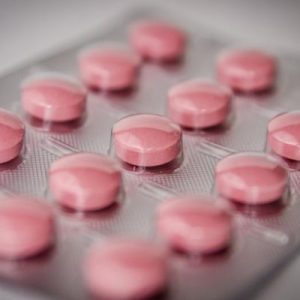
Hormone Therapy in Breast Cancer
How it works, how it is administered and what are the possible side effects
The hormone therapy is a basic form of systemic treatment for women with hormone-dependent breast cancer, that is, when the growth of cancer cells is influenced by female hormones, such as estrogen and progesterone. Approximately 7 out of 10 cases breast cancer are hormone-sensitive.
How does hormone therapy work?
Treatment aims either at obstruction of action of hormones to the receptors of cancer cells either in the suspension of production of these hormones in the body. In this way, slows down or stops tumor progression and reduces the risk of disease recurrence.
How is hormone therapy administered?
The Hormone therapy is mainly administered orally., after surgery, and has duration 5 to 10 years, depending on each woman's risk profile. The most common pharmaceutical options are:
- Tamoxifen: Suitable for premenopausal and postmenopausal women.
- Aromatase inhibitors (such as anastrozole, letrozole): are mainly indicated for postmenopausal women.
- Combination of the above drugs in certain therapeutic protocols.
In certain cases, hormone therapy may be started preoperatively, to reduce the size of the tumor.
Ovarian suppression in premenopausal women
For high-risk premenopausal women, ovarian function may be suppressed to stop estrogen production, achieved by:
- Pharmaceutical sedation (e.g. subcutaneous monthly injection of goserelin – Zoladex), which has the advantage of being reversible.
- Surgical removal of the ovaries, in selected cases.
Ovarian suppression may be accompanied by menopause symptoms, such as hot flashes, night sweats, irritability and vaginal dryness.
What are the most common side effects?
Side effects vary with the drug and duration but often include:
- Hot flashes and night sweats
- Vaginal dryness. and decreased libido
- Arthralgias (joint pain)
- Osteoporosis, especially with aromatase inhibitors
- Increased risk of thrombosis or stroke, especially with tamoxifen
- Endometrial cancer (in long-term use of tamoxifen)
To prevent bone loss, regular orthopedic and endocrinological check-ups are important, as well as strengthening the diet with calcium and vitamin D.
In summary
Hormone therapy is important therapeutic tool for the prevention of breast cancer recurrence in women with hormone-dependent tumors. The correct choice of regimen, good information and monitoring by the medical team ensure safer and more effective treatment.
Learn more at breastaware.gr
At breastaware.gr you’ll find reliable, scientifically backed, and easy-to-understand information on all breast conditions, diagnosis, treatment options, and the importance of prevention. Stay informed, empowered, and take charge of your health!
Scientific Sources:
- National Comprehensive Cancer Network (NCCN) Guidelines
- Early Breast Cancer Trialists' Collaborative Group (EBCTCG),
- Burstein HJ et al., Adjuvant Endocrine Therapy for Women With Hormone Receptor–Positive Breast Cancer: ASCO Clinical Practice Guideline Focused Update, Journal of Clinical Oncology, 2019.
- Gnant M. et al., Ovarian Suppression in Premenopausal Breast Cancer: Current Status and Future Perspectives, ESMO Open, 2021.
- American Cancer Society – Hormone Therapy for Breast Cancer
